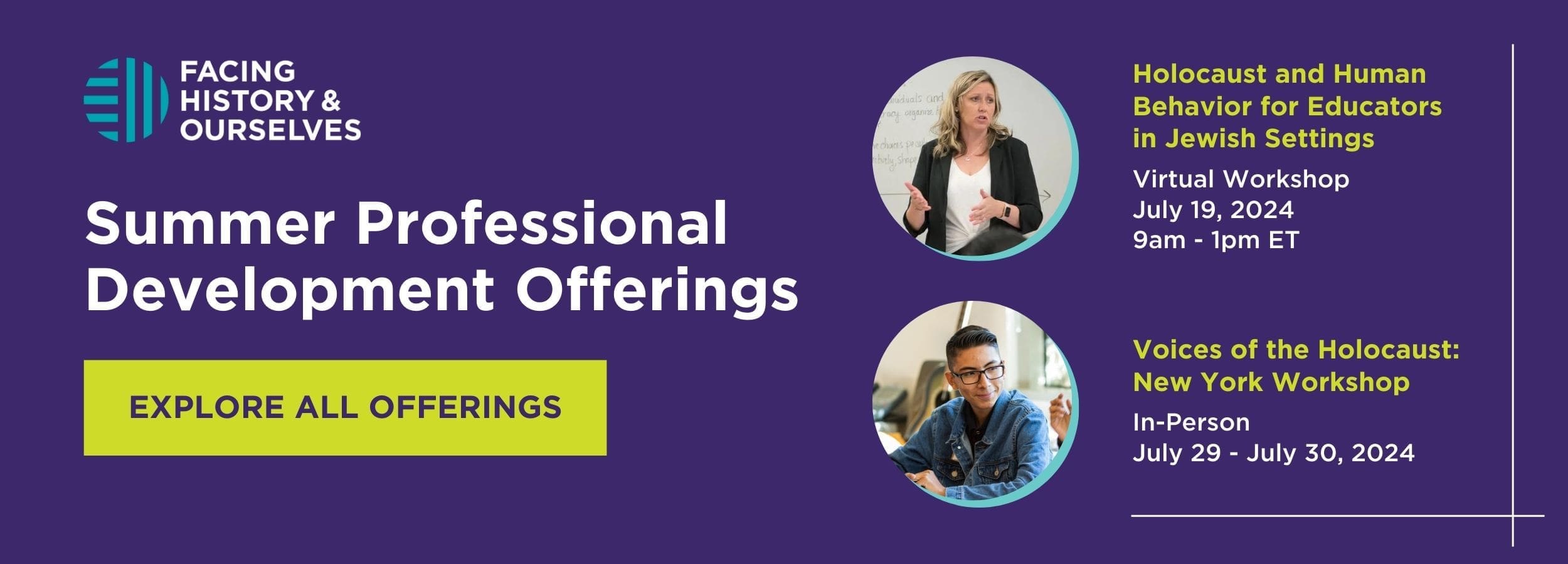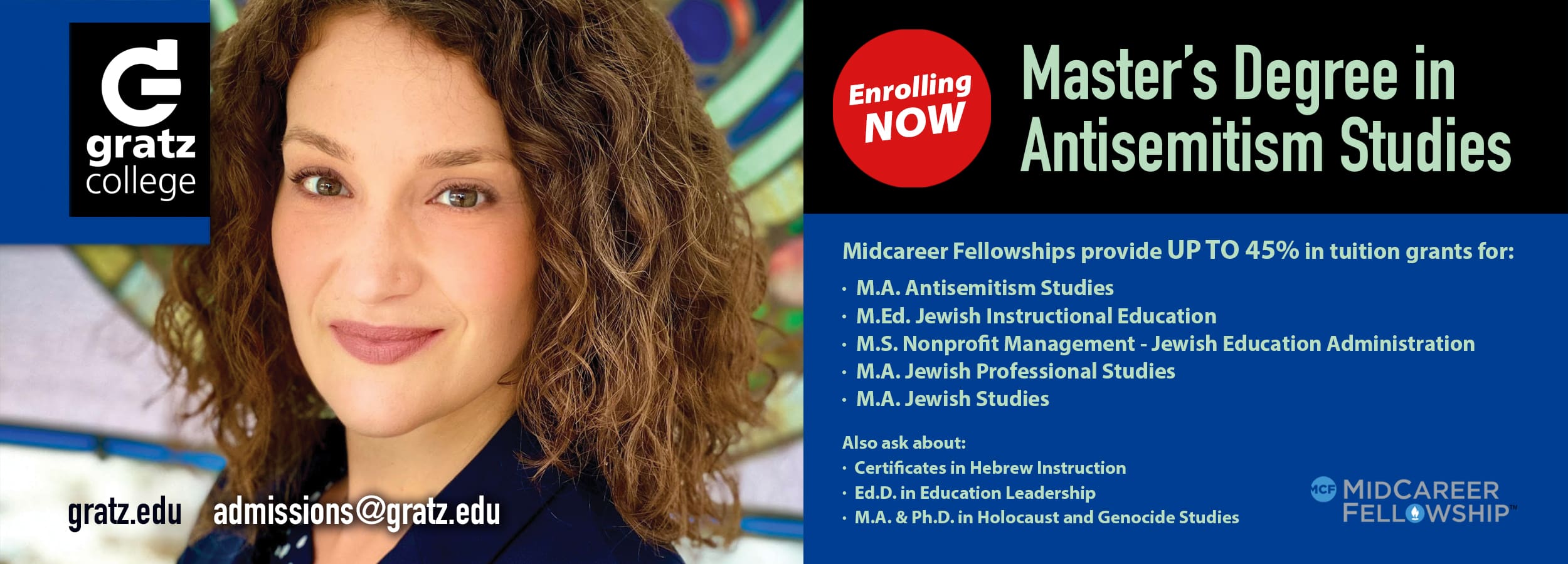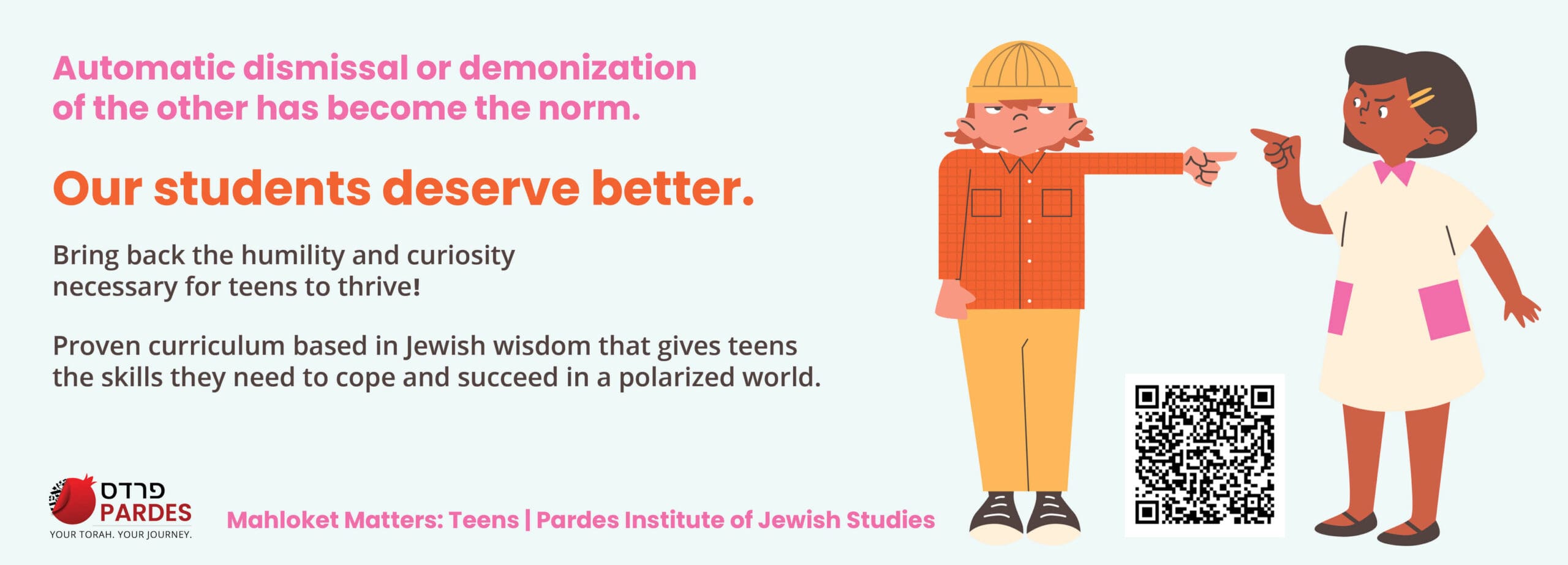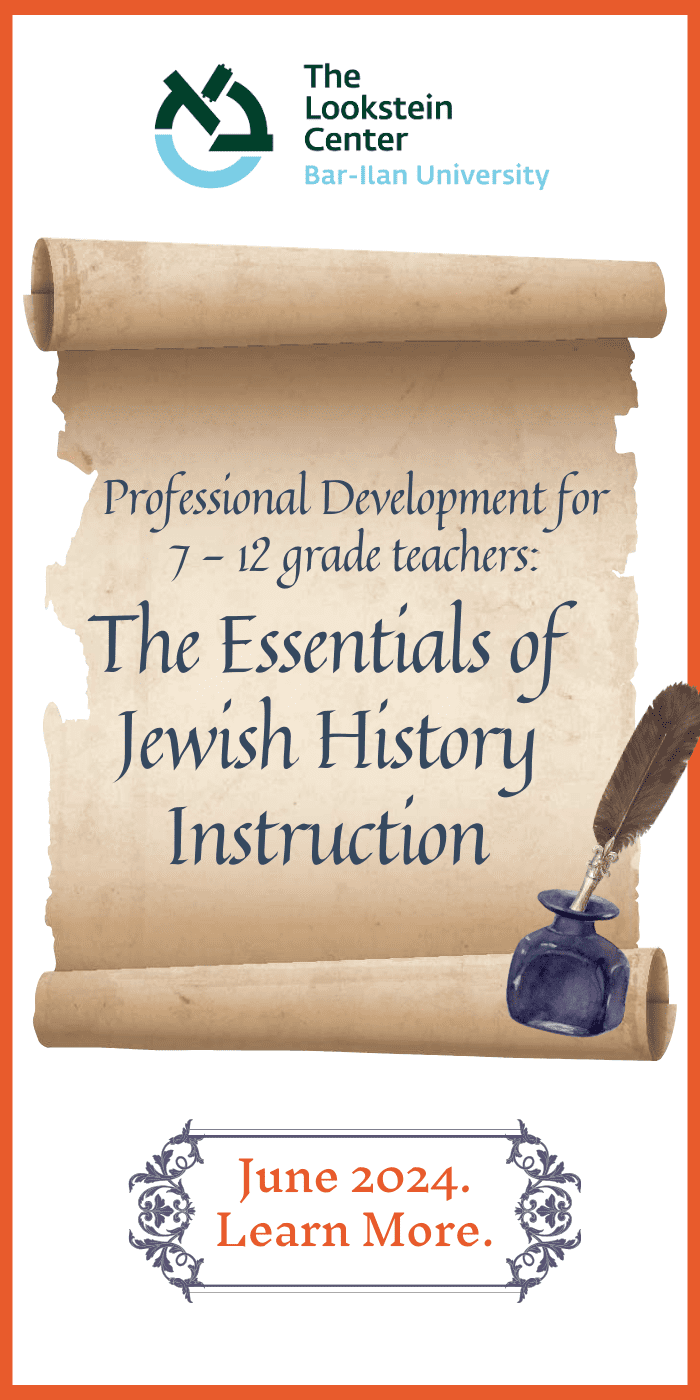Accepting and Representing the Greater Jewish Community: an Interview with Jonathan Levy
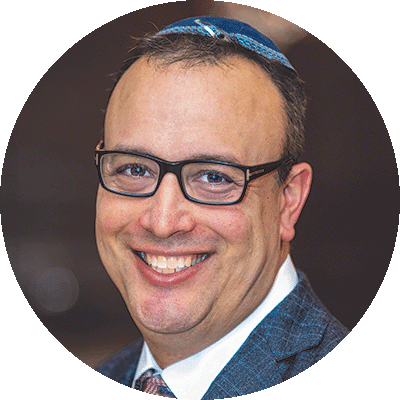
Jonathan Levy is the Head of School at TanenbaumCHAT (Toronto) and previously served as campus principal at TanenbaumCHAT. Dr. Levy holds a Ph.D. from McGill University, where he worked to help the ultra-Orthodox schools. His commitment is to prepare and support students to live lives of high moral character, intellectual curiosity, Jewish commitment, and civic duty.
Jewish Educational Leadership: In what ways do you see diversity as a challenge in your school and in what ways do you see it as an opportunity?
Jonathan Levy: We represent the Greater Toronto Jewish community, which means what we see in the Greater Toronto Jewish community is what we want to see here at our school. That can mean the whole range of diversity. It can be religious backgrounds, it can be a physical disability, it can be academic challenges. Of course, we do have limits in terms of what we can do and what we can’t do. We can’t be everything to everybody, but our goal is to be a diverse community that represents the Greater Toronto community. If you see it out there in the Toronto Jewish world, hopefully, you will see an element of that in our school as well, with a guiding beacon being how we create respectful interaction, and how we learn to celebrate our differences rather than finding ways to divide us. Our message has always been that we are stronger when we understand and celebrate each other and the things that we have in common as opposed to harping on the things that make us different. That’s the beacon, that’s what we are trying to achieve. What makes me most proud is when I see a student who does not observe kashrut order the pizza from a kosher pizza place when they get together on Saturday night so that the kosher-observing friend can be part of the group, or when they move a party from Friday night to Saturday so that the observant kids can be there. This doesn’t happen always, but it is heartwarming when it does.
Where does that get challenging?
It gets challenging in classes where you want to have a robust discussion and there are strong opinions about the issue. Take everything from the “two-state solution” in Israel to homosexuality to belief in God. We encourage students to take a position and to be able to articulate and defend it, but sometimes people will not be the most tactful in how they say this. For example, we have a large number of Orthodox teachers, probably a larger percentage of Orthodox teachers than we have Orthodox students. They can express their personal views, which tend to follow fairly traditional lines, but are sure to express them as personal views while allowing for other opinions as well. So whenever you talk about sensitive issues, you’re going to have strong opinions—and that can lead to stressful moments.
So how do you induct teachers into this culture, especially when you have people who themselves come from very different kinds of orientations?
That process starts from the moment someone interviews for a teaching position. We’re clear about what the school stands for. There could be an interview question such as: “How would you handle a comment made in class that is different from your personal view about an issue?” So we want to get a sense right from the moment we’re meeting someone. Then there is the onboarding of new staff, in which these issues are discussed. How do we create a classroom environment where there can be different opinions expressed? How can you handle disagreement? How does a teacher express an opinion and encourage students to disagree? So we do really work hard on that from the outset, because we think, especially in a community school, it’s crucial to have an environment of acceptance. I said acceptance, not tolerance because it has to be a higher standard than tolerance; it has to really be an acceptance.
Are there things that are out of bounds? Yes, some things are out of bounds. For example, we won’t have a conversation about the notion that Israel shouldn’t exist; that’s out of bounds. But we will talk about a two-state solution, a three-state solution, etc.—those are all within the bounds.
Do you encourage teachers to express their personal views, discourage them, or just accept that they will, and work with that?
We have clear written guidelines about it, which basically run along the lines of that teachers are entitled to their opinion and to share their opinion as long as it’s stated as their opinion and others are allowed to have their opinions and share them as well. Of course, it goes a step further, that all those opinions must be respected and included and accepted.
Where do parents fit in? you spoke about the multiplicity of opinions amongst the students, amongst the staff, and the differences between them—are parents’ opinions ever brought in or part of the discussion?
Well, we certainly hear from parents. When a student goes home and says, “You wouldn’t believe what happened in class today…,” or “You wouldn’t believe what so and so said in class today…,” we’ll get those calls and will follow up to clarify. But we do not have parent volunteers in school; we do not have parents who join classroom discussions. We run different classes for parents and will sometimes share with them what’s happening in their child’s classes, but this is a high school and kids don’t want their parents here. Don’t get me wrong, there are lots of other places for parents to share their opinions about the school. The board of directors sets an overall strategic plan for the school and there are parents involved there. We’re in a strategic planning process right now, and parents are represented there. They help to set broad-stroke direction, and that’s at a really high level that is not about particular issues. So parents would be involved in setting a broad direction that states, for example, that the school is an inclusive community. We do run classes for parents over the course of the years in various subjects because we do like them to see some of the things that our teachers are doing in class, but it’s really to give the parents a chance to hear about what we do in in the classroom. We do invite grandparents in once a year, and it’s a lot of fun.
You mentioned that you do have limits, and you provided some examples. Are those limits explicit or implicit, and what happens when somebody crosses those limits?
Usually, we’ll try to take those situations as educational opportunities with students unless we think that there’s something defiant that’s going on. It may be addressed briefly, but we don’t want the class or discussion to be hijacked by a position which is contrary to our fundamental beliefs and core values. So if someone says that homosexuals should burn in hell, that’s not something that’s within the bounds of the school and so there might be a private one-on-one discussion with a teacher or a guidance counselor or perhaps a conversation with the students about it. Those are things that are not going to get a lot of airtime or considered acceptable because they are considered out of bounds.
Let’s jump into specific types of diversity. Has navigating the landscape of gender or sexual identity been a challenge in your school?
In terms of gender identity, transgender students, students with two mothers, two fathers, and other things like that, we have students and families across the spectrum in the school—we welcome that diversity. We have a gender-neutral washroom, which we put in a number of years ago. We were nervous about it when we did it, but it didn’t move the needle among the students. We’ve had students who have transitioned from one gender to the other and we’ve had name changes, lots of kids come out of the closet over the course of their high school years and this too barely moves the needle anymore among the students.
We do have a club acknowledging our diversity, but we don’t sexualize homosexuality any more than we sexualize heterosexuality. It’s not about sexuality but about diversity. There can be speakers who will talk about inclusiveness and openness, and we’re happy to have that, and we put up the rainbow flag—but there is no pride parade in the school. They have a staff advisor like every other club, and it is the staff advisor’s job to work with the students to help them plan. We have some really good people working as their staff advisors who are the right people for that role, and they will turn to the administration if there is a question. As an institution, we’ve come a long way in the last five or ten years in terms of becoming more inclusive and welcoming of diversity.
Are there students who have a hard time with that or is it just accepted?
Of course, there are some students who have concerns, and we’ve had challenges that every organization that addresses this has to deal with. How do we handle rooming on a trip correctly? How do we handle Phys Ed classes? Every one of these has to be handled on a case-by-case basis, and usually it’s the guidance team that leads this. So, it’s not that we don’t have challenges. It’s that we are navigating our way through this, figuring things out in a rapidly changing landscape, which means that sometimes we’ll make mistakes, but we want to be a place where there is inclusivity for those students.
The political culture over the course of the last few years in the United States, and here in Israel as well, has become incredibly divisive. Elections, COVID policies, and Israel have been serious hot-button issues that have affected many schools and created schisms. How do you handle a diversity that threatens to divide?
So, Canada is not the United States here and I would say that Canadian culture is certainly way behind the United States in terms of the level of divisiveness. However, we are only 50 miles from the border and everyone goes there all the time. We get American news and are highly influenced by what goes on there. Canadian politics has become more contentious than it has been in the past—we’re not quite where the US is but we are certainly heading in that direction. What’s the role of the school? We stay true to our belief that our role is to educate, to present information, and to facilitate discussion. Our role is to help students establish and defend a position on things—we want them to learn how to do that, but we don’t want to tell them what that opinion is or should be. So, to avoid talking about any of the issues is problematic because then they leave high school, get to university, and then they would feel like we had cheated them, that we didn’t teach them important things, or how to think about a range of issues from multiple perspectives. Even when it comes to Israel education, in the past we did not include anti-Israel positions, but now we think that it is important that students learn about them and be able to discuss them here. We’ll invite both a liberal and conservative politician to address the students. As an institution, we are apolitical, and no political candidates are allowed to advertise or rally on our property. And we do have a group that is very interested in politics and wants way more opportunities to be involved, so we’re helping them do that in a responsible way.
Sometimes it’s tough and it’s not as perfect as I make it sound. Every once in a while, there are intense debates in which someone says something that they shouldn’t and then there’s a mess that needs to be cleaned up. But to avoid it, to avoid any difficult conversation, I do not believe is the right way to approach it.
One thing we are interested in is the role of day schools in engendering passion—Jewish educators want their students to be excited about their Judaism, and to hopefully continue to lead some sort of Jewish life after they exit the institution. You earlier spoke about teacher’s opinions and students’ opinions and how everything is accepted. How can we get our students to be passionate when everything is acceptable?
At the end of the day, I’d like to graduate kids who are serious about their Judaism. You can be serious about your Judaism in different ways. You can be Orthodox like me, and have habits and a set of principles called halakhot, which you hold by. You can be completely secular and have a set of values related to tikkun olam or your own beliefs about the world or about God and so forth. And those are perfectly acceptable as well. As long as you feel connected in some way. If you attend a Reform synagogue regularly and you feel strongly connected, as far as I’m concerned, I’ve completed the mission of the school with you even though the way you celebrate your Judaism is not the way that I celebrate my Judaism.
A bigger concern that I have is the changing demographics of the population. In the last six years, we’ve gone through massive growth, and almost 25% of our population now are students who have no prior Jewish day school learning. On one level that’s amazing. Here we have a population that in a previous generation was mostly disconnected and is now choosing to come to a Jewish school. On the other hand, the level of Jewish knowledge that students are bringing into the school is lower, and even in the more traditional schools where most of our kids used to come from, the families are less knowledgeable coming into the school. So the overall level of Jewish literacy is probably lower than it has been in previous years. And I think it’s Jewish literacy, not Jewish identity, which is the goal that we’re striving for. We want the kids to be able to walk into a synagogue and understand what’s going on. We want them to celebrate the holidays and know what they’re doing and we want them to be able to open up a text and be able to be familiar with it. We want them to know the history of our people going back a long time. We want them to be able to speak Hebrew and to feel a strong connection to Israel.
So how do you do that? You have this Jewish literacy challenge As well as the challenge of creating connections and different pathways for kids with varied Jewish backgrounds.
We want the kid who’s coming in with extensive Jewish day school experience since kindergarten to become friends with the kid who’s coming into the New Stream (students with little prior Jewish learning). That would actually be much easier if we were a school of 70 kids and we had a small, intimate community. We are trying to do that with a school of 1300 students.
So, let’s say you have someone who’s entering grade nine. We have 17 classes for each General Studies subject in grade nine. So for their general studies courses, where everyone’s had the same course of program through elementary school, those 374 grade nine students will be divided randomly amongst those 17 classes. We essentially throw the names in the air and come out with 17 classes of kids. So, the 20 kids that are in your English class (which all happen at the same time) could be different from the 20 kids you have math with or the 20 kids that you have geography with, etc. All those students get mixed together. So in any class, there are New Stream kids and regular stream kids and everybody makes multiple circles of friends.
Jewish Studies operates differently. There, too, all the classes are conducted in parallel, but the New Stream kids have classes appropriate for them—and the regular stream kids have the classes appropriate for them. And again, there are multiple levels. There are the classes that are conducted Ivrit beIvrit, there are the classes that are conducted in English, there are remedial classes, there are enriched classes for those looking for extra challenges, and so on. For the New Stream kids, we sometimes have them stay together as a group for all of their Jewish studies classes so that they get to build a hevre and so that their teachers get to know them better. It’s not perfect, it’s always a challenge, but it’s how we try to build both interpersonal bonds across cultural divides as well as building literacy and connection with a Jewishness of their choice. And, of course, we are always looking to challenge kids so that they will be engaged and challenged and connected.
How do you handle tefilla and Shabbatonim?
I struggle with this a lot. We have an optional minyan in the morning, a traditional mehitza minyan, which attracts a small number of students and some staff members. We would love to offer alternatives, but there is very little student interest in coming an hour before school to be part of it. We would like to offer something more, like a Rosh Hodesh service, but we have not done that yet even though it’s something we’d like to explore, to think about what we could do. Anything we do for a school of 1300 kids from diverse backgrounds is a real challenge.
Every grade nine student goes on a Shabbaton, and we run three or four of them a year. After that we have optional ones run by a team of madrikhim from grades 11 and 12 representing the diversity of the school. So some can lead tefilla, those who are really good at engaging kids, those who can run activities in the afternoon, etc.
The way it works is pretty simple. The rule that we have is in public spaces, we ask people to be Shabbat-observant. The Shabbat-observance is mostly around phones, and we ask the kids to just not bring them to the public spaces—the dining room, the Beit Knesset. What people do in their private cabins is not regulated. The same is true when it comes to food. The food we serve is kosher on the highest level of standards in Toronto. We do not regulate what happens in the private spaces. This way we create a public safe space for everyone but don’t impose round-the-clock observance in the private spaces.
Have you ever students who have left the school because either they or their parents couldn’t deal with the openness your school culture?
Look, when parents register their children to come here, there are certain basics that are pretty clear. They have to pay tuition. There are going to be a certain number of Jewish studies classes that their kids will be required to attend. They understand that the school has a range of values that identify us; they are what we stand for. And the students know that too. And everyone knows that part of being an adolescent is making changes in one’s life—changes of all kinds. We might not like all of those changes, but that is an important part of growing up or forging an identity. So parents and students need to learn to accept the changes that other kids go through as well.
I can’t specifically point to any cases where families left because of the openness. We have had a couple of students who left because they felt that they wanted a more religious environment—which could mean that there are more kids who keep kosher so that when they go to a friend they don’t have to worry about that or that there are more kids who keep Shabbat so that they don’t have to worry about that. But many stay precisely because of the feeling of being part of a broader community.



Jonathan Levy is the Head of School at TanenbaumCHAT (Toronto) and previously served as campus principal at TanenbaumCHAT. Dr. Levy holds a Ph.D. from McGill University, where he worked to help the ultra-Orthodox schools. His commitment is to prepare and support students to live lives of high moral character, intellectual curiosity, Jewish commitment and civic duty.
Reach 10,000 Jewish educational professionals. Advertise in the upcoming issue of Jewish Educational Leadership.
Do you want to write for Jewish Educational Leadership? See the Call for Papers for the upcoming issue.
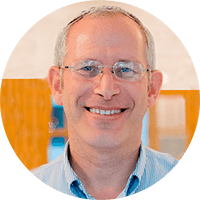

FROM THE EDITOR: SPRING 2024
In the 1970s, UJA’s rallying slogan was: “We are One.” Indeed, those were the days in which the Jewish community banded together over three core principles—commemoration of the Shoah, saving Soviet Jewry (and Syrian Jewry and Ethiopian Jewry), and Israel. The past fifty years have eroded each of those. People are tiring of the Shoah and are eager to move on from what Salo Baron termed the “lachrymose conception of Jewish history.” Soviet Jews left en masse in the 1990s with the fall of the Berlin Wall and the collapse of the Soviet Union, and Jews of Syria and Ethiopia have mostly migrated and resettled as well. And Israel, which is itself grappling with unparalleled polarization, no longer serves as a uniting factor for many North American Jews. All this leaves us, fifty years after the UJA banner, with a dramatic shift in punctuation:
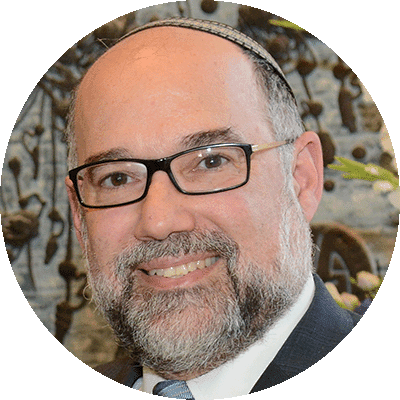

Realities and Opportunities of Diversity in an Orthodox School: an Interview with Leonard Matanky
I see diversity as a reality. Because our schools have always been diverse, the question is, how diverse should our schools be? On the one hand, we can talk about tribes, every tribe had its own personality, and those personalities didn’t always mesh so beautifully, like the way that Yissakhar and Zevulun are often presented. So, I see diversity as something that has always been present. I think the one challenge we have, when it comes to the question of diversity is the very same kinds of things that Jonathan Haidt talks about when he talks about the moral foundations theory and how we view that diversity within a religious institution. And so, our school has always been a diverse
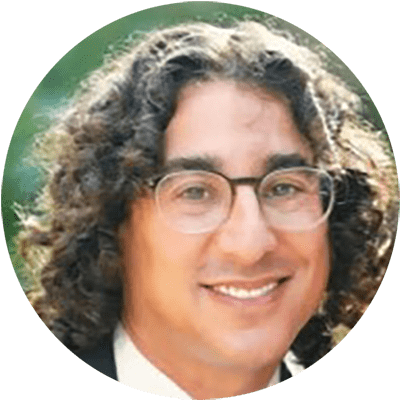

Aspiring to Expand our Circle of Inclusion: an Interview With Jon Mitzmacher
The opportunity is to ensure that our students come through their experience with an opportunity to learn about and learn with those who may be different than themselves, different across a variety of categories, whether it’s socio-economic, whether it’s learning differences, whether it’s with ideological differences, the value is in experiencing themselves as part of a diverse kehilla. The challenges, I would say, are divided into two broad categories. Most of the kinds of diversities that are challenging for schools boil down to economics;
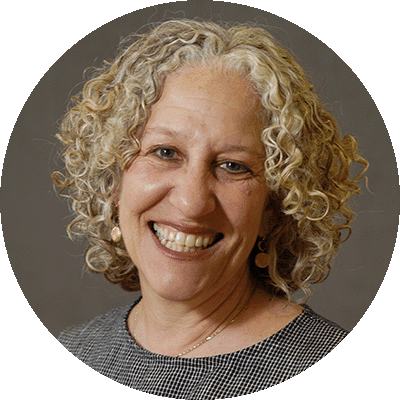

Embracing Diversity, Building a Stronger Jewish Future: an Interview with Nicole Nash
I’m going to start with opportunity because, to me, the opportunity outweighs any challenges. I’ve been in the field for a long time, and when you work in Jewish education, you meet so many children, parents, faculty, staff, and community members. I’ve had the privilege to see just how diverse the Jewish people are. When we are at our best, our diversity can be a real source of strength and celebration of Jewish peoplehood. When I say diversity, I think about it across ethnicity, race and nationality, Jewish identity and practice, interfaith family composition, sexual orientation, gender identity, life experience, socioeconomic status, worldviews—the list goes on and on.
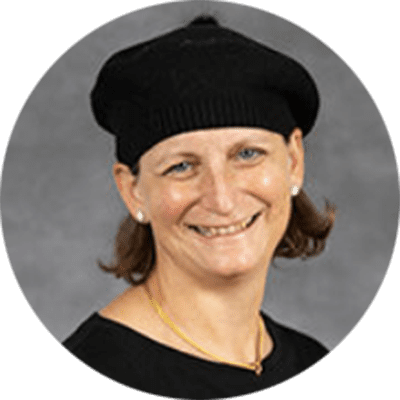

Cultivating Individuality and Cultivating Belonging: an Interview with CB Neugroschl
Diversity is both a deeply meaningful value and also a pop language word that means many different things to different people. When I was a Jewish philosophy teacher, diversity in our curriculum was about the relationship between Jews and non-Jews and about how we understand Hashem’s mission for both. When I speak about diversity today here in Teaneck, I recognize that we are talking about a very tiny slice of the diversity pie. The reality is that we are an all-girls Orthodox high school serving a fairly homogenous community. Of course, there are going to be nuanced differences, but the bottom line is that all those differences are within a fairly narrow band on the spectrum. So, here’s some background on where diversity is important in our context.
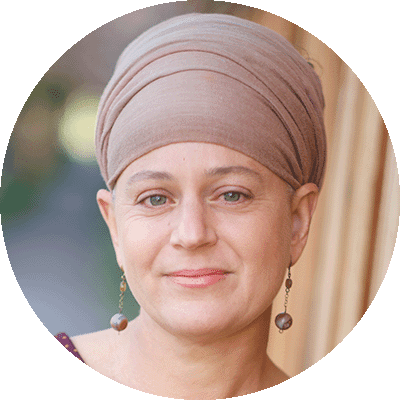

Ahavat Yisrael in a Small Jewish Community: an Interview with Tania Schweig
We’re a small community and our school has about 165 students. We’re quite stable in our enrollment and there are those who come and go because of the university. I feel like there’s a tremendous importance in small communities like ours and also a tremendous gift in these small communities. And I think our community has this special quality of ahavat Yisrael (love for our fellow Jewish people). I think that it’s important to say this because it is connected to the work of diversity. I really appreciate—like genuinely love—diversity. I like being in a place where it’s safe to be all kinds of things; it mirrors my own path. When I was in Pardes in Israel, I got to choose my path, I didn’t want to be in a box measuring up to someone else’s standards. For example, I wanted to be the person who’s becoming observant yet who is also asking questions about feminism.
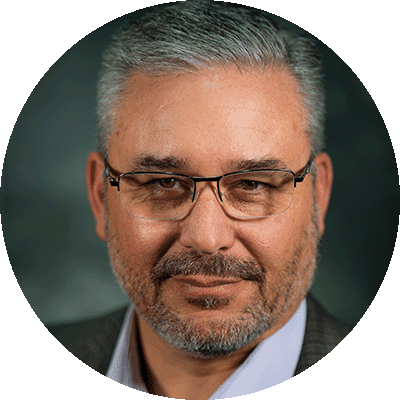

Diversity, Kindness, and Developing A+ Human Beings: an Interview with Mark Shpall
I try not to see it as a challenge. I really do see it as an opportunity because our students will continue to grow and go off to college, where they are going to be exposed to the real world, working with and interacting with people of all different backgrounds, ethnicities, learning abilities, appearances, etc. So we have the opportunity here to start or continue to process being open to that. We really try to do that from day one. In fact, we start school a week from today, but we are doing our retreats for our ninth and tenth graders starting now. Those retreats are all about the process of students opening themselves up to others in different ways and in different formats. We talk to our students about our core values, we want to talk about them so often that they start rolling their eyes at us because
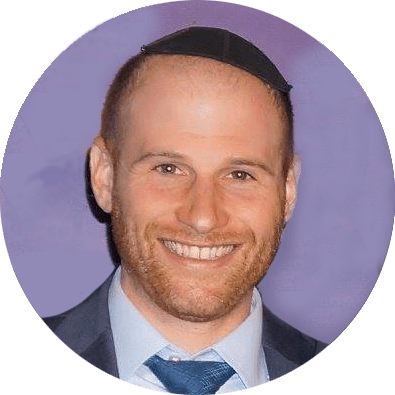

Compromise for the Sake of Community: an Interview with Sam Weinberg
I think that it’s important to remind ourselves that our diversity is defined in fairly narrow terms. We like to say that we are diverse, and that means that we span from traditional Conservative to right-wing Orthodox. Within that range, we like to celebrate our diversity, and that means that we can all learn from each other. That can be a challenge, since some in our community are very cautious about, if not openly hostile to, the idea of learning from those outside of their own group. It wasn’t always this way; I see more separatist trends developing in the last ten years, meaning that at least one segment of our population is growing increasingly insular. The community in general has become much more polarized, and some people only want to be with others who look and think like them.


